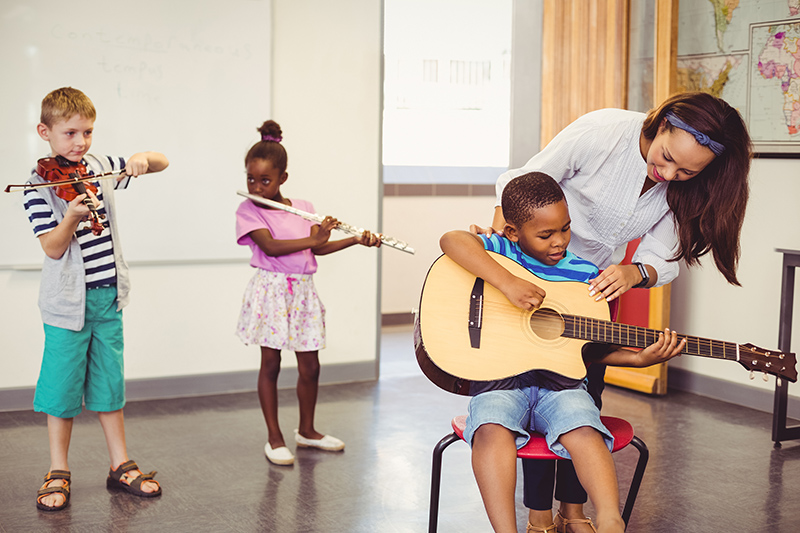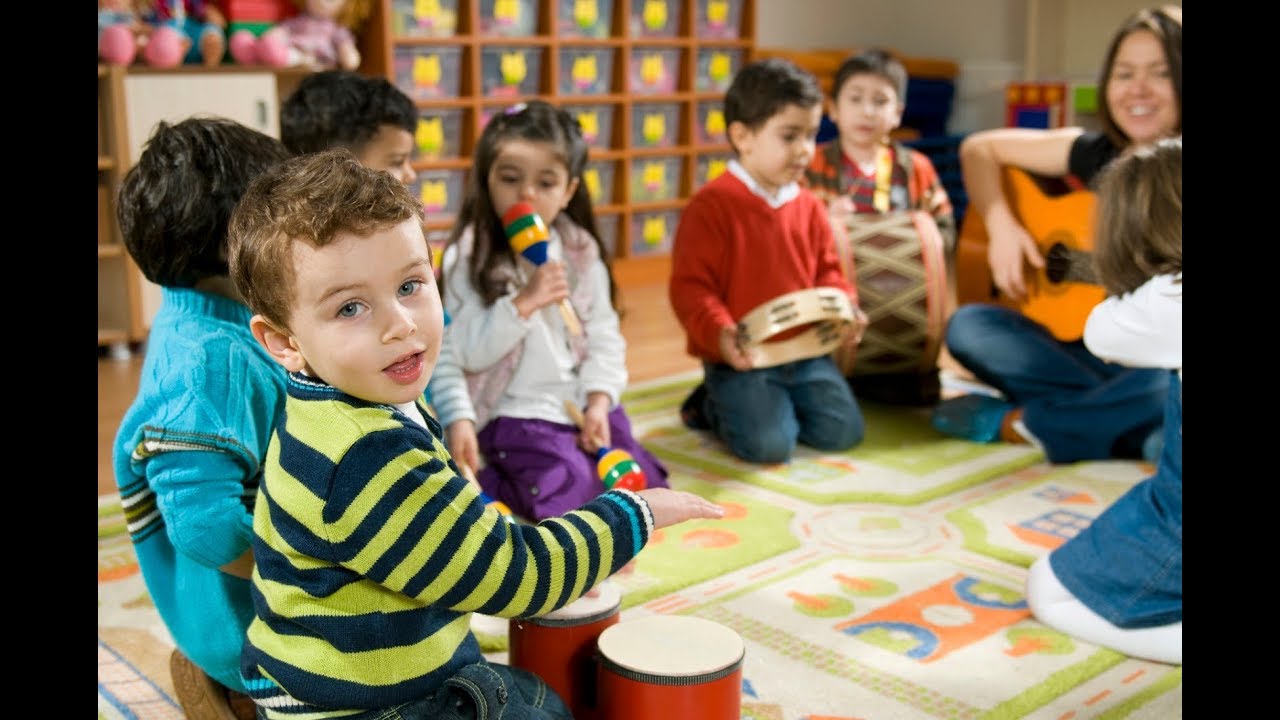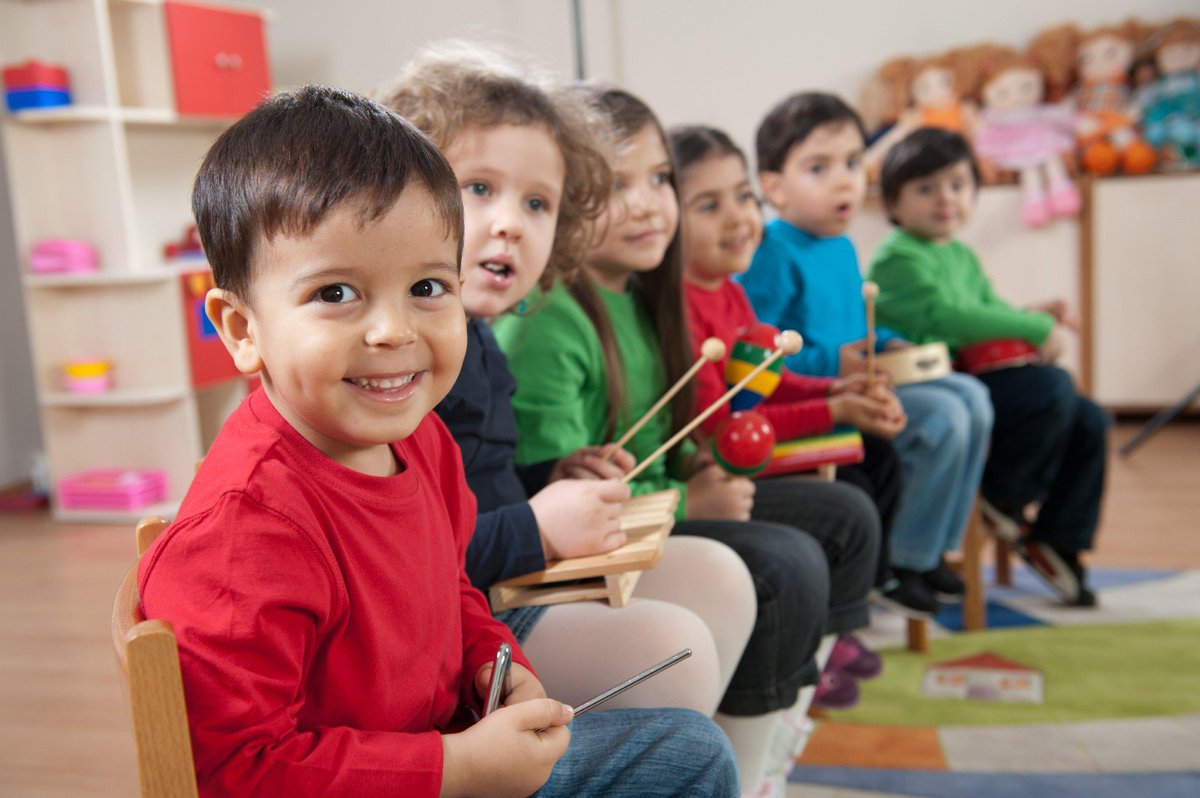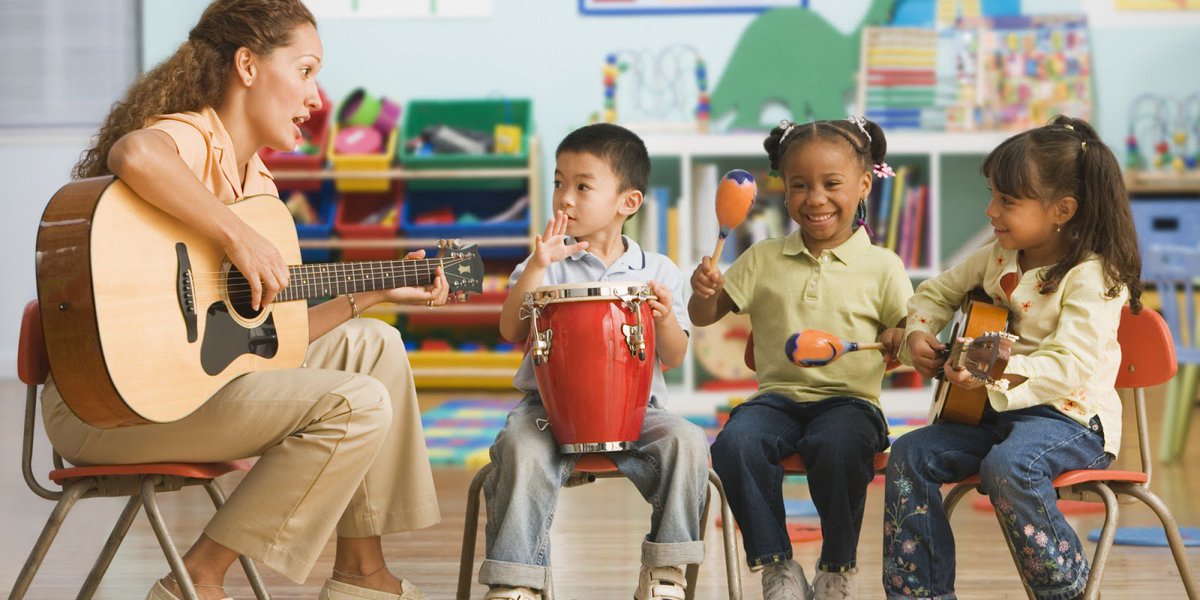It is a scientifically proven fact that children benefit from music. Sure, they don’t appreciate the intricacies of Pink Floyd music right now, but you never know what he/she might grow up to be. The early exposure to music is ideal for giving the child better equipment to deal with the failures and difficulties of life.
Music for emotional and social development
More and more children, all around the world are spending less time being physically active. Gone are the days of fantastic games, parent interactions and mixing with different generations. With the absence of all these critical growing up steps, children are becoming socially inactive and low on emotional quotient. Do not allow your child to spend all the daylight hours fixating on the television or the laptop screen. Build up empathetic abilities by exposing him/her to music. You have many options for your toddler starting from baby songs to music for the pre-school kids.
Encourage the natural creative, musical and artistic side

A baby, right from the fetus stage gets exposed to various sounds including the mother’s heartbeat and the voice. As a baby grows, so does his/her auditory, speaking and understanding abilities. By six months, your boy/girl will respond to toys rattling, bangs and music. Early exposure to music is therefore highly essential in bringing forth the natural creative and artistic side in a child.
Music will help the child grow into an expressive and emotive individual. It will impart essential and useful knowledge about life as a whole. He/she will learn pattern, pulses, rhyme, and order without the use of a complicated language. Encourage the imagination and ability of storytelling.
Music and singing has surprising benefits

Since music is independent of the language, it doesn’t take much to respond to it or learn it. The first and the most basic response to music is body movement or choreography. This helps in developing cognitive and neuromuscular coordination through the physical motions of stretching, kicking or hitting.
You can look at singing as a form of aerobic exercise where the practitioner can increase his/her efficiency concerning the cardio-vascular system and oxygenation of blood. Singing and practicing music has also been linked to improved alertness and stress reduction.
Practicing music together in a group is also beneficial when it comes to the development of teamwork and interpersonal bonding. Music aids the expression of feelings of joy, resentment, failures, and sadness better than the conversational language.
Benefits of movement and dance through music

The most undesirable demand you can make on a child is to ask him/her to sit still and listen to music. Observing how keenly children are taking to music is critical for assessing their development. Foot-tapping and dancing hands or bobbing heads are at times beautiful to look at in a child.
Music is the ideal way to develop spatial awareness in kids. This is extremely important to prohibit the development of clumsy habits and gait in children as they grow up. This is true even for children with various learning impairment and difficulties.
In conclusion
Expose your kid to music from an early age to develop his/her communication skills. Let the toddler express his ideas through body, face, and voice while connecting with human emotions actively. Develop your child into a global citizen.




